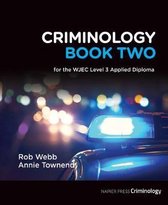AC2.2 Describe trial process
There are three types of criminal offences:
o Indictable
Triable either way
o summary
crimes with a jury trial
Although they begin in a magistrates court, indictable offences are the most serious and must be tried in
crown court. Indictable offences include, for instance, homicide, manslaughter, rape, and robbery.
Both ways to trial offences
Offenses that can be tried either manner can be tried in the magistrates' court or the crown court.
Although the judge in a crown court has greater sentencing authority, there is a larger likelihood of
acquittal by a jury than in a trial in a magistrates' court. Theft, burglary, and assault causing serious
bodily harm are some examples of either way offences.
Summary offences
The least serious offences are summary offences, which include most traffic violations as well as less
serious crimes like violence and assault. They are required to remain in magistrates court.
Criminal courts
Magistrates' court
All criminal matters are initially heard in a magistrate's court, where the great majority—roughly 95%—
of them are ultimately resolved. Only a tiny portion continue on to a crown court. Typically, three
magistrates make the determination of guilt and the proper penalty. They are laypeople, which means
they lack legal training. A clerk with legal training helps them.
Their ability to sentence someone is restricted to six months in prison and/or a £5000 fine for a single
offence; this amount doubles for two or more offences. They can refer a case to the crown court for
sentence if they believe their sentencing authority is insufficient. Typically, a lawyer representing the
defendant will enlist the aid of legal money. The prosecution's case will be presented by a CPS official.
Crown court
All indictable offences, instances in which a defendant has chosen jury trial, offences that can be tried
either way, and situations in which the magistrate has declined jurisdiction are heard in crown court.
When a magistrate declines jurisdiction, it implies they deemed the matter to be too serious for them to
hear and instructed the crown court to handle the triable offence. It will be decided to hold a jury trial if
the dependent enters a not guilty plea. Both the prosecution's and the defense's evidence, including
that of the witnesses, must be heard by the jury.
Court of Appeal Criminal Division





